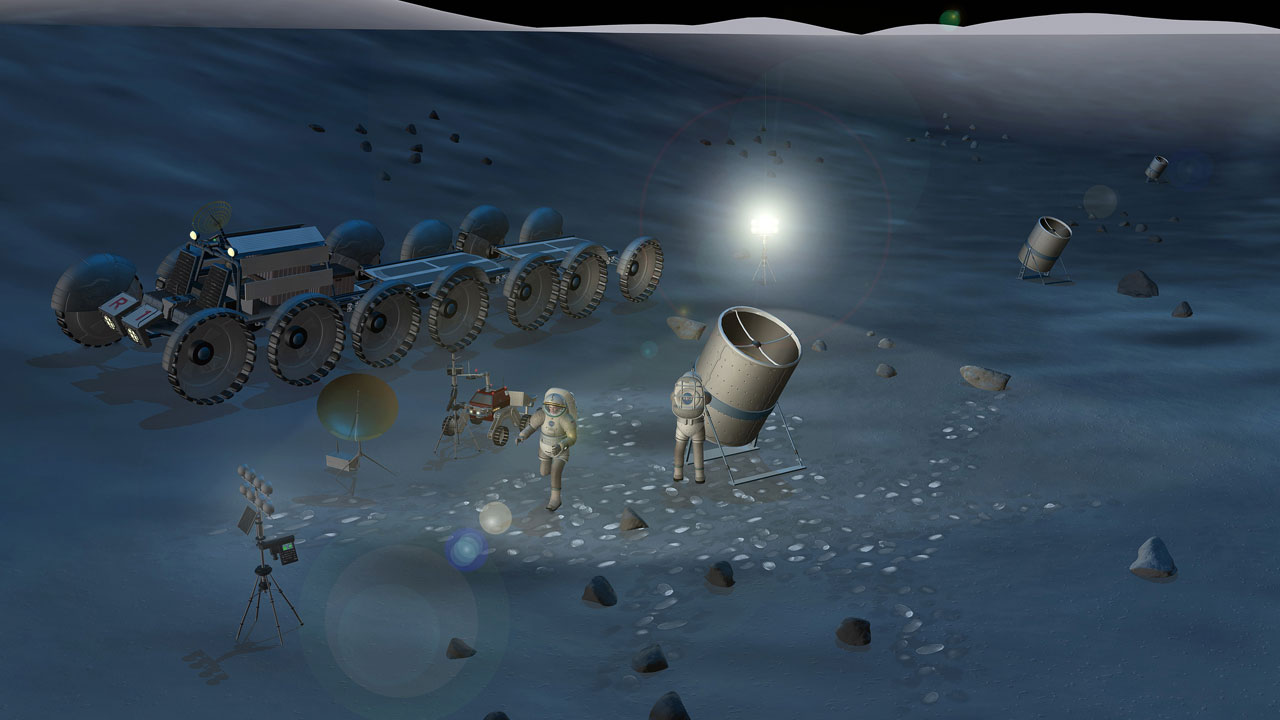Water on the Moon distorts the telescope
The plan to install Chinese scientists' telescopes on the moon in 2013 could be affected by the existence of water on the planet.
In 2009, observational data of the US Space and Aeronautics Agency (NASA) spacecraft showed evidence of the existence of water on the Moon and millions of tons of ice at the poles of the planet. . The discovery of water on the Moon is considered to open up a hope of a new place for people in the future.

The telescope will be installed on the Moon. (Graphics: stfc.ac.uk)
However, recently, a study by scientists from the Chinese Academy of Sciences showed that water molecules on the Moon might interfere with the signals of telescopes, which are intended to be installed in the year. 2013 on the surface of this planet. The construction of a telescope on the Moon is said to have many advantages over Earth such as a cloudless sky and less affected by seismic movements.
Space quoted Dr. Zhao Hua, an astronomer from the Chinese Academy of Sciences: ' Last year, scientists discovered water molecules that existed on the Moon. But, the Sun's ultraviolet rays can separate the water molecules in the process of evaporation into hydrogen and hydroxyl . " The signal from the telescopes on the Moon's surface is interrupted.
Dr. Zhao Hua explained this process: " At certain ultraviolet wavelengths, the hydroxyl molecules on the Moon will scatter and will affect telescope observations during sunny times. " .
- Homemade telescope watching the moon with 2 plastic bottles
- Put the telescope on the moon
- New NASA research: Water and humans can be found on the Moon, so come back soon
- Water on the Moon can affect telescopes
- Search for water on the moon thanks to space exploration devices
- Detecting water jets shot from Jupiter's southern pole
- Where does the Moon's water come from?
- The moon contains water from its formation
- Telescope James Webb will search for alien life
- A new discovery about the Moon
- Detecting water on the surface of the Moon
- Science may have found water right on our Moon
 Van Allen's belt and evidence that the Apollo 11 mission to the Moon was myth
Van Allen's belt and evidence that the Apollo 11 mission to the Moon was myth The levels of civilization in the universe (Kardashev scale)
The levels of civilization in the universe (Kardashev scale) Today Mars, the sun and the Earth are aligned
Today Mars, the sun and the Earth are aligned The Amazon owner announced a secret plan to build a space base for thousands of people
The Amazon owner announced a secret plan to build a space base for thousands of people